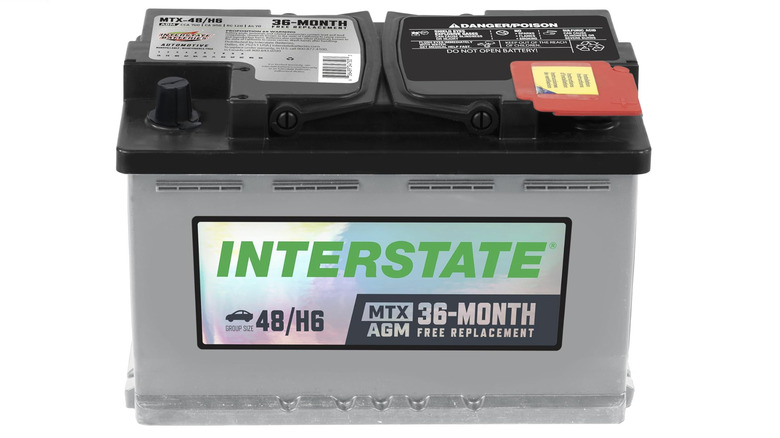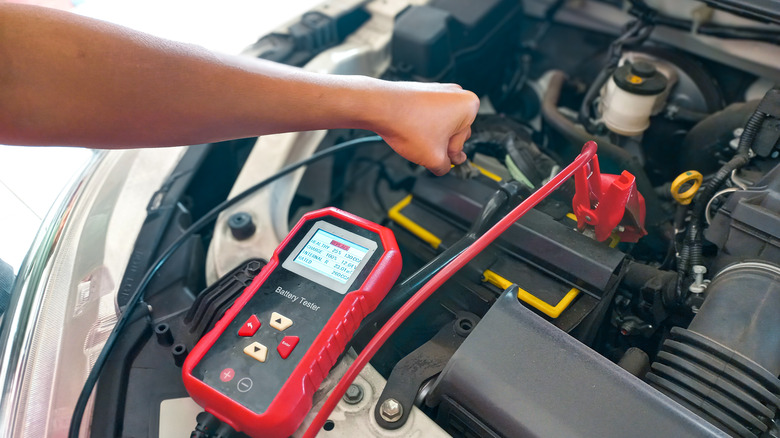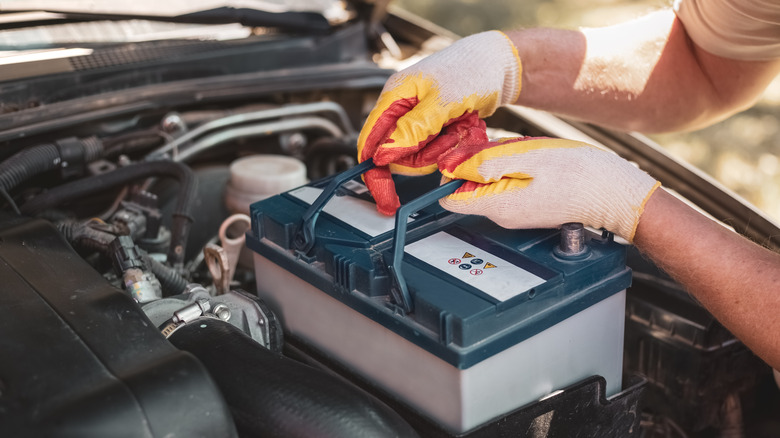How To Find The Right Battery Size For Your Car (And Why It Matters)
We may receive a commission on purchases made from links.
When it comes to choosing the right car battery, it's not just about opting for a brand you know or going for whatever is on sale; it's essential that the battery you choose will make your car run efficiently and safely. In colder climates, choosing the wrong battery might mean it lacks the sufficient cold cranking amps (CCA) to consistently start your car. Physical size also matters; if it's too big or small, the battery might not fit securely or you could have problems connecting it. Every battery is classified by group according to terminal location, physical dimensions, and power output. These standards are set by the Battery Council International (BCI) group and help owners match new batteries to their vehicles.
There is no "close enough" here. Installing a battery not meant for your car can lead to starting problems, damage to the electrical system, and even a voided warranty. Modern cars also often feature sensitive electronics, which may not work correctly if you use the wrong batter. As a matter of fact, batteries are so important that many "car won't start" complaints are traced back to bad batteries or problems with installation. Thus, choosing the right battery group is just as crucial as choosing the right brand. Many car batteries have the group number printed on a label on the case, but you should also be able to get this information from your owner's manual or dealership's service departtment. You don't need many tools to change a battery, but guessing your battery's group size is a sure way to make the swap more difficult.
Group size is designated with number and letter codes
Replacing your car battery with one from the same group ensures it will fit securely into the battery tray, connect properly to the cables, and provide enough juice to start and run your car. BCI guidelines establish group sizes for batteries with codes like 24F, 35, and 48H6. If you try to use a battery that doesn't match your vehicle, you may not be able to fit it properly or connect it at all. Two other factors covered by group size are reserve capacity and CCA rating. Reserve capacity refers to how long a battery can support electrical systems with the engine off, and CCA ratings reflect its ability to start the engine. A battery that doesn't meet your car's minimum CCA spec could leave you stranded during a cold snap, and one with insufficient reserve capacity can die under normal driving conditions.
Vehicle-specific demands, like for cars with start-stop technology or additional features, make proper sizing even more crucial. Battery group is loosely tied to vehicle class. For example, compact sedans may take Group 35 batteries, while SUVs and pickups might use a group 48. Larger trucks or performance cars could use a larger group 65 or 78 battery, but be sure to check your battery's label before you go shopping for a new one. Proper fit and getting one with the right specs is as important as choosing a low-priced but reliable car battery.
The wrong battery can wreck your alternator
Even if you can get a battery of the wrong group size physically mounted in your car, you'll almost definitely have problems. Excessive vibrations from being mounted in a space that's too large will damage the battery, and it could short out if it shifts enough for the terminals to make contact with metal surfaces. Cables can also be damaged or come loose if they're stretched to tightly or routed incorrectly. Capacity is as important as physical size. Most alternators should last more than 100,000 miles, but that failure can come quicker if the battery can't keep up with the vehicle's demands.
If you're trying to start a car using a battery with insufficient cold cranking amps, your starter can die prematurely as well. The financial and mechanical consequences of a mistake can be significant, but fortunately it's pretty easy to make sure you're using the right battery. If you can't find it your battery group on your own, Wal-Mart stores with auto centers and all Batteries Plus locations perform free fit checks and installation services if you buy a battery from them. This in-person assistance will really help streamline your first-time battery replacement process, but whether you go it alone or get help, the right fit is everything.


